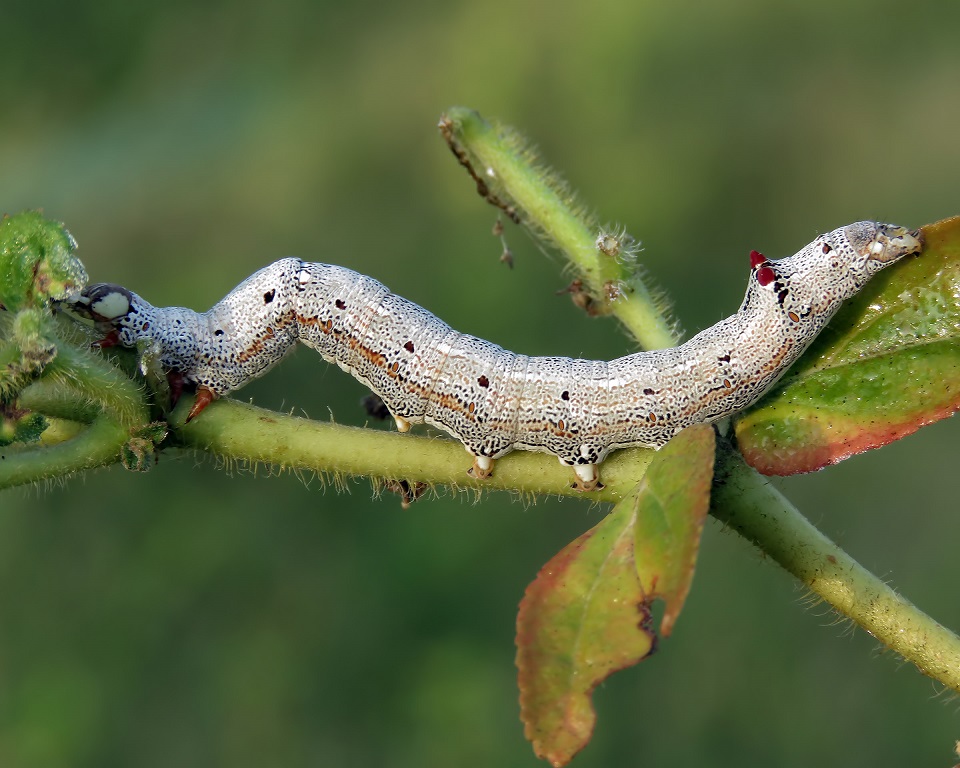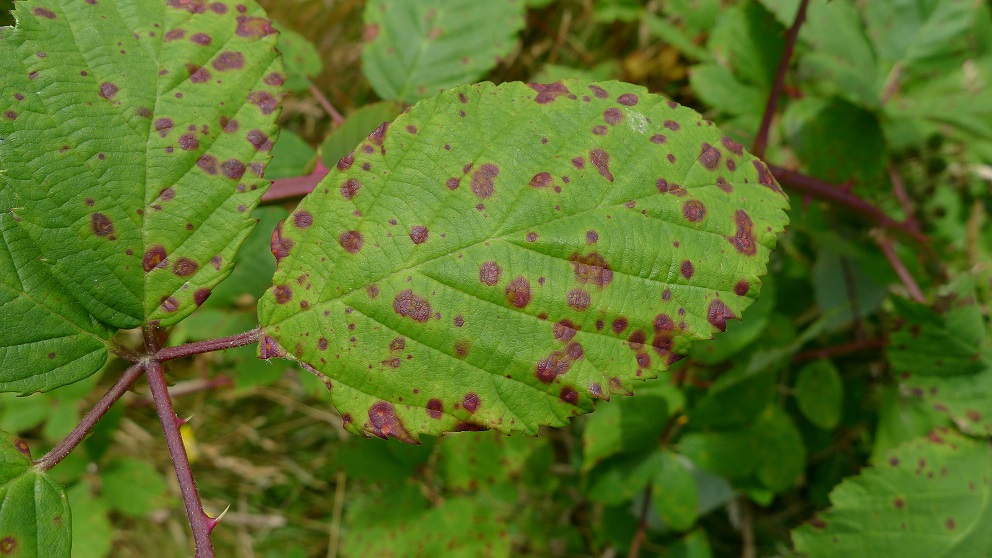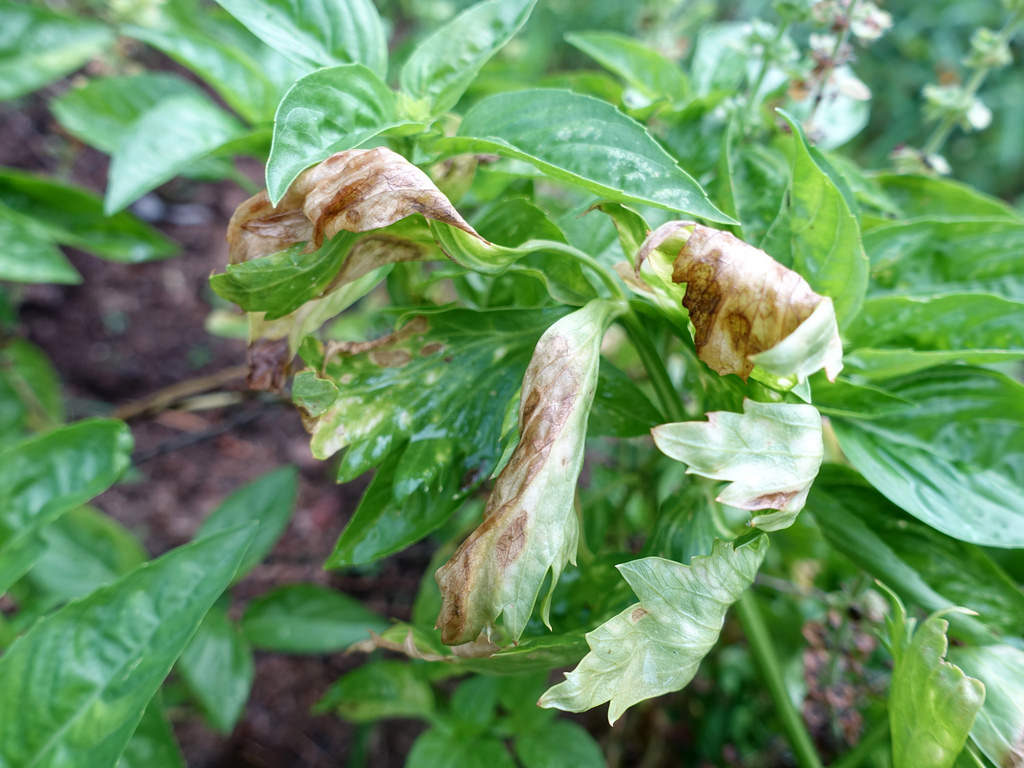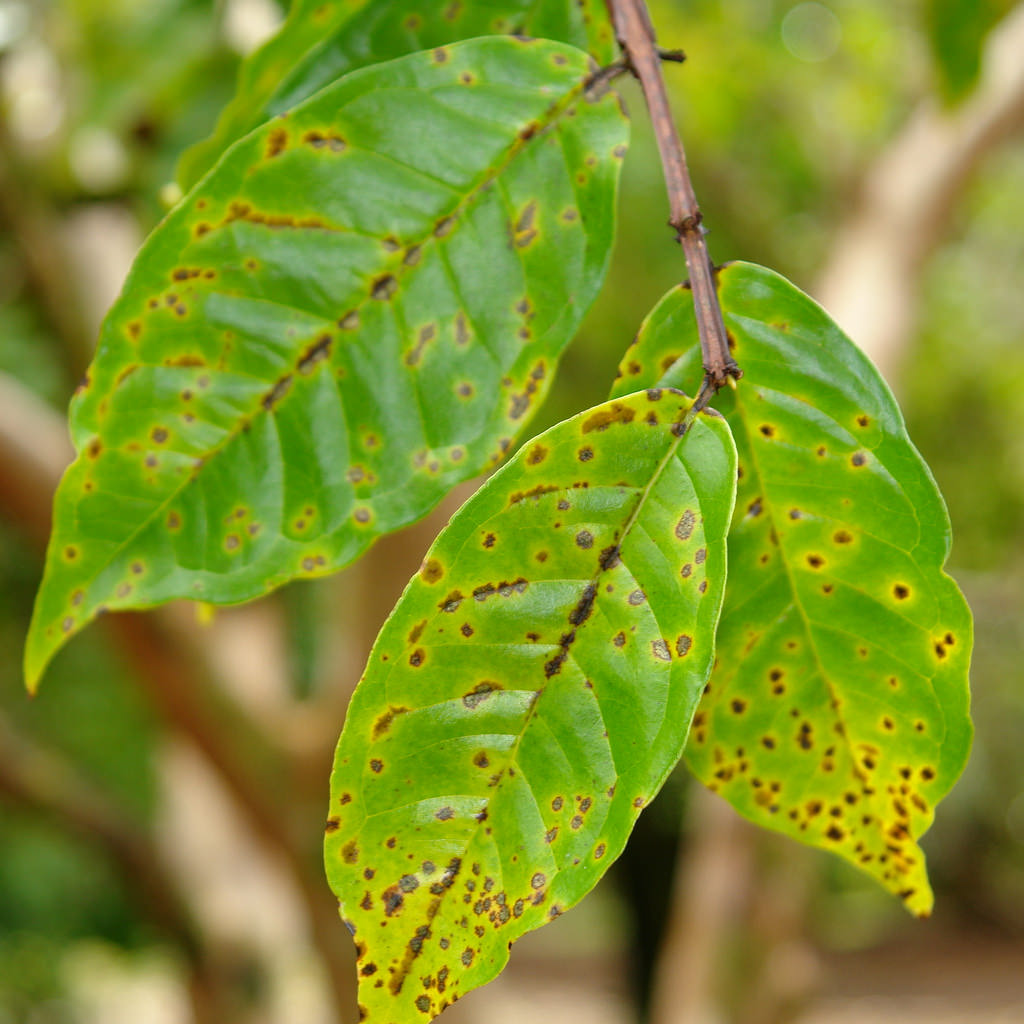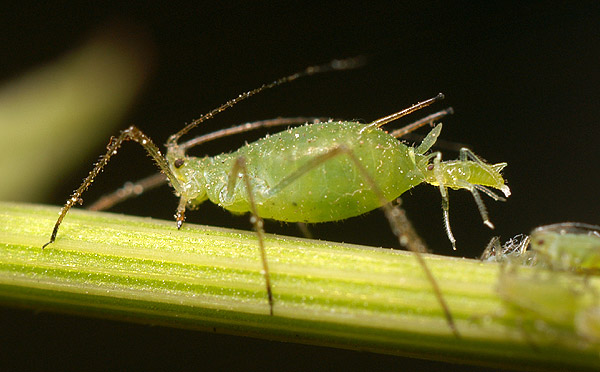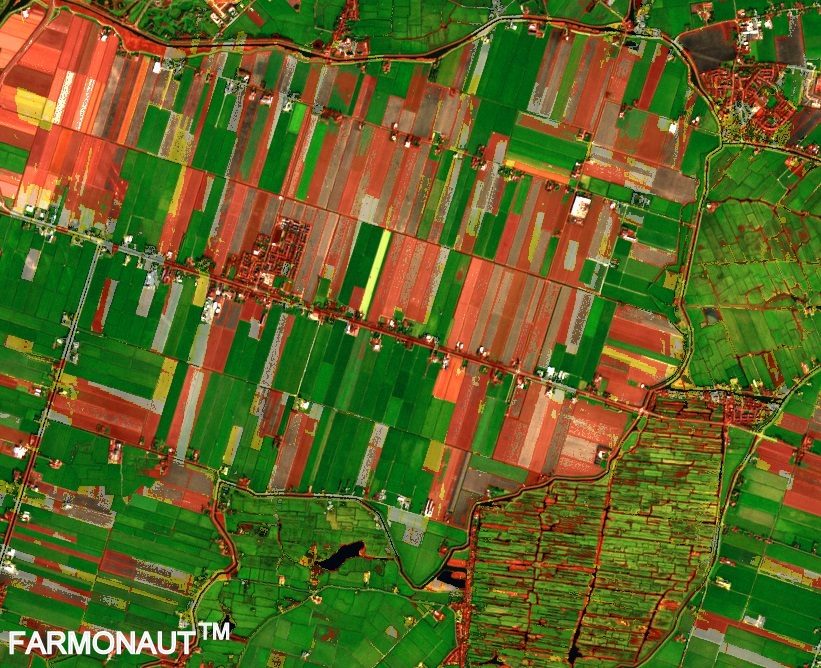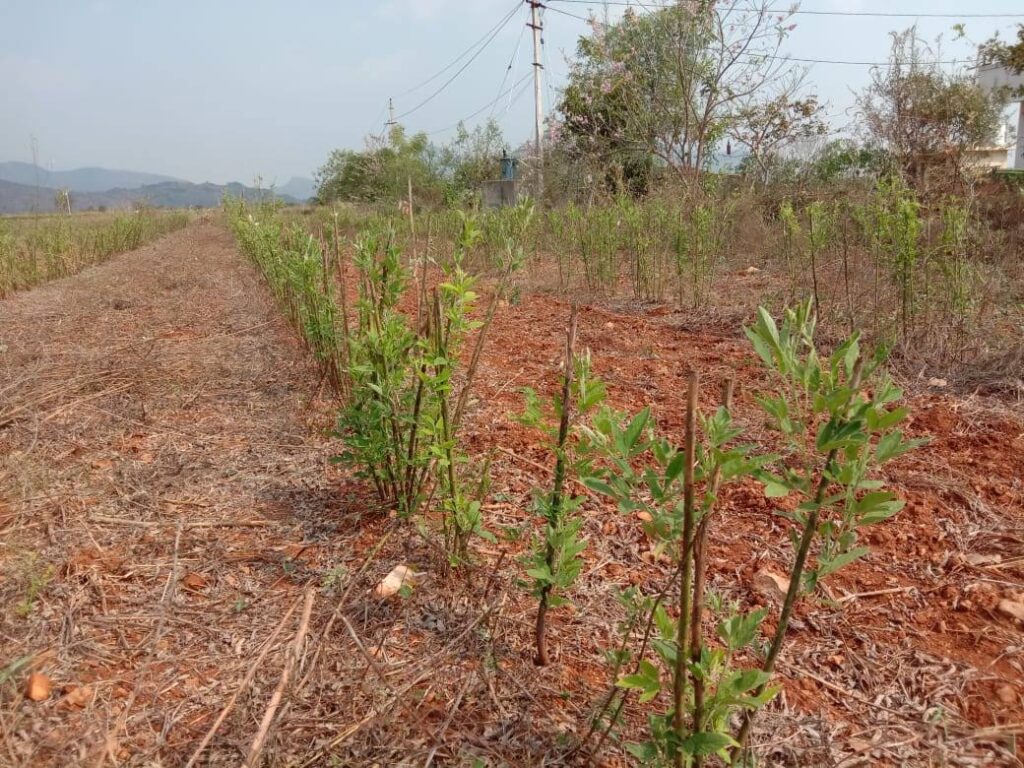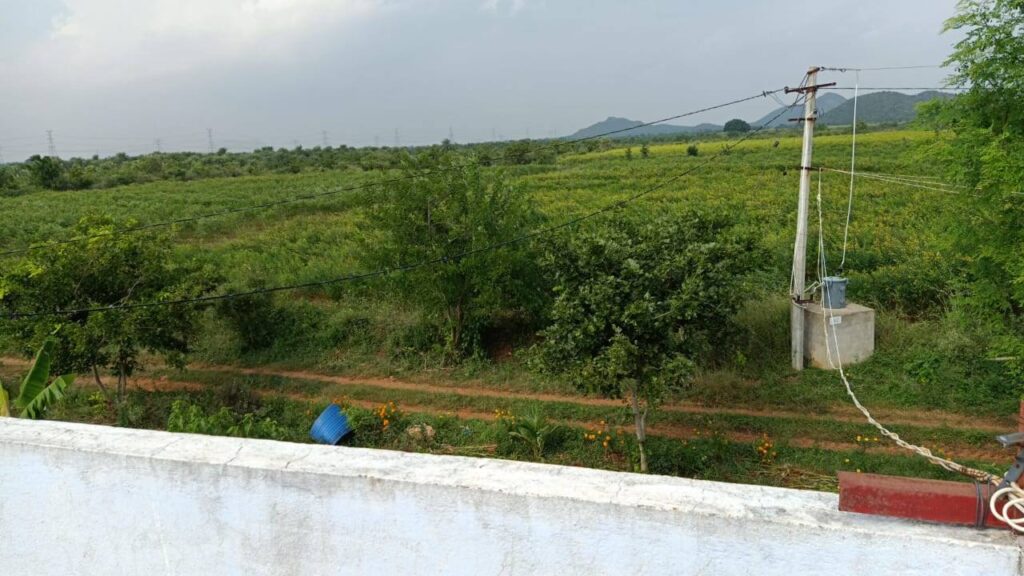
Effective Ways to Eliminate Black Citrus Aphids: A Comprehensive Guide for Citrus Growers
As experts in agricultural technology and pest management, we at Farmonaut understand the challenges faced by citrus growers worldwide. Among these challenges, black citrus aphids stand out as a persistent and damaging pest. In this comprehensive guide, we’ll explore everything you need to know about these tiny yet destructive insects, and provide detailed strategies on how to get rid of black citrus aphids effectively.
Understanding Black Citrus Aphids
Before we delve into control methods, it’s crucial to understand our enemy. Black citrus aphids, scientifically known as Toxoptera aurantii, are small, dark-colored insects that feed on the sap of citrus trees. These pests are often referred to simply as “citrus black” due to their appearance and host preference.
- Size: 1.5-2 mm long
- Color: Dark brown to black
- Preferred hosts: Citrus trees, especially young shoots and leaves
- Damage: Leaf curling, stunted growth, honeydew secretion
Black citrus aphids reproduce rapidly under favorable conditions, leading to large populations that can severely impact citrus tree health and fruit production. Understanding their life cycle and behavior is key to implementing effective control measures.
The Impact of Black Citrus Aphids on Citrus Crops
The damage caused by black citrus aphids can be significant and multifaceted:
- Direct Feeding Damage: Aphids use their piercing-sucking mouthparts to extract sap from young leaves and shoots, leading to distorted growth and reduced vigor.
- Honeydew Production: As they feed, aphids excrete a sticky substance called honeydew, which can cover leaves and fruits, promoting the growth of sooty mold.
- Virus Transmission: Black citrus aphids are known vectors for several plant viruses, including Citrus Tristeza Virus (CTV), which can be devastating to citrus orchards.
- Reduced Yield: Severe infestations can lead to significant reductions in fruit yield and quality.
Given these impacts, it’s clear why citrus growers are eager to learn how to get rid of citrus aphids, particularly the black variety.
Monitoring and Early Detection
The first step in effective aphid management is regular monitoring and early detection. At Farmonaut, we emphasize the importance of vigilant orchard surveillance, which can be greatly enhanced through our advanced satellite-based monitoring system.
Traditional Monitoring Methods
- Visual Inspection: Regularly examine young shoots, the underside of leaves, and tender growth for aphid presence.
- Sticky Traps: Yellow sticky traps can help detect flying aphids and monitor population levels.
- Tap Sampling: Gently tap branches over a white sheet to dislodge and count aphids.
Advanced Monitoring with Farmonaut
Our satellite-based crop health monitoring system offers several advantages over traditional methods:
- Wide Coverage: Monitor large orchards efficiently without the need for extensive manual inspections.
- Early Detection: Identify stressed areas of the orchard that may indicate pest presence before visible symptoms appear.
- Historical Data: Track pest pressure trends over time to predict and prepare for future outbreaks.
To experience the benefits of our advanced monitoring system, visit Farmonaut’s Crop Monitoring Platform.
Integrated Pest Management (IPM) Strategies
Now that we’ve covered monitoring, let’s explore comprehensive strategies on how to get rid of black citrus aphids using an Integrated Pest Management (IPM) approach.
1. Cultural Control Methods
Cultural control focuses on creating an environment that’s less favorable for aphid infestation:
- Pruning: Remove and destroy heavily infested shoots to reduce aphid populations.
- Proper Irrigation: Avoid over-watering, as excessive new growth attracts aphids.
- Fertilization Management: Balanced fertilization prevents excessive tender growth that aphids prefer.
- Weed Control: Eliminate weeds that can serve as alternative hosts for aphids.
2. Biological Control
Encouraging natural enemies of black citrus aphids can be an effective long-term strategy:
- Ladybugs: Both adults and larvae are voracious aphid predators.
- Lacewings: Green lacewing larvae, known as “aphid lions,” feed on aphids and other soft-bodied insects.
- Parasitic Wasps: Tiny wasps that lay eggs inside aphids, eventually killing them.
- Syrphid Flies: Their larvae feed on aphids and other small insects.
To promote these beneficial insects:
- Plant flowering plants near orchards to provide nectar and pollen sources.
- Avoid broad-spectrum insecticides that can harm beneficial insects.
- Consider releasing commercially available beneficial insects in severe cases.
3. Physical Control
For small-scale operations or isolated infestations, physical control methods can be effective:
- Water Sprays: A strong jet of water can dislodge aphids from plants.
- Pruning and Destruction: Remove heavily infested parts and dispose of them properly.
- Reflective Mulches: Silver-colored mulches can repel aphids in young orchards.
4. Chemical Control
While we advocate for integrated approaches, chemical control may be necessary in severe infestations. When considering how to get rid of citrus aphids using pesticides, follow these guidelines:
- Selective Insecticides: Use products that target aphids while minimizing harm to beneficial insects.
- Timing: Apply when aphid populations are beginning to increase but before damage becomes severe.
- Rotation: Alternate between different classes of insecticides to prevent resistance development.
- Spot Treatment: When possible, treat only affected areas rather than entire orchards.
Common effective insecticides include:
- Neonicotinoids (e.g., imidacloprid)
- Pyrethroids (e.g., bifenthrin)
- Organophosphates (e.g., malathion)
- Insecticidal soaps and horticultural oils for organic production
Always follow label instructions and local regulations when applying any pesticide.
Leveraging Technology for Effective Aphid Management
At Farmonaut, we believe that technology plays a crucial role in modern pest management. Our satellite-based monitoring system offers several advantages for citrus growers dealing with black citrus aphids:
| Feature | Farmonaut Satellite System | Drone-based Monitoring | IoT-based Monitoring |
|---|---|---|---|
| Coverage Area | Entire orchard in one image | Limited by flight time and regulations | Limited by sensor placement |
| Frequency of Data | Regular updates (every 3-5 days) | Depends on manual flights | Continuous but localized |
| Cost | Low, subscription-based | High initial investment, ongoing operational costs | Moderate to high, depending on sensor density |
| Ease of Use | User-friendly interface, no equipment needed | Requires skilled operator and maintenance | Requires installation and maintenance of sensors |
| Data Analysis | AI-powered insights and alerts | Often requires manual interpretation | Automated alerts based on predefined thresholds |
Our system allows growers to:
- Detect early signs of stress that may indicate aphid infestation
- Monitor the effectiveness of control measures over time
- Optimize resource allocation for pest management
- Integrate pest management with overall orchard health monitoring
To explore how our technology can revolutionize your aphid management strategy, visit our Farmonaut API Documentation for integration options.
Preventive Measures for Long-term Aphid Control
While knowing how to get rid of black citrus aphids is crucial, prevention is equally important. Here are some long-term strategies to reduce the likelihood of severe infestations:
- Resistant Varieties: Some citrus varieties show higher resistance to aphid infestations. Consider these when planning new orchards.
- Biodiversity: Increase plant diversity in and around orchards to support natural enemy populations.
- Soil Health: Maintain healthy soil through proper organic matter management and balanced nutrition.
- Water Management: Implement efficient irrigation systems to avoid water stress and excessive new growth.
- Regular Monitoring: Establish a routine monitoring program using both traditional methods and advanced technologies like Farmonaut’s satellite monitoring.
The Role of Weather in Aphid Management
Weather conditions play a significant role in aphid population dynamics. Understanding and predicting these patterns is crucial for effective management. Farmonaut’s weather API provides valuable insights for citrus growers:
- Temperature Forecasts: Aphid reproduction rates are closely tied to temperature.
- Rainfall Predictions: Heavy rains can naturally reduce aphid populations.
- Wind Patterns: Important for predicting aphid dispersal and planning spray applications.
Integrate our weather data into your management strategy by exploring the Farmonaut Weather API Documentation.
Future Trends in Black Citrus Aphid Management
As we look to the future, several emerging trends promise to revolutionize how we manage black citrus aphids:
- AI-Powered Pest Prediction: Advanced algorithms will predict aphid outbreaks based on historical data, weather patterns, and satellite imagery.
- Precision Application Technologies: Drone and robotic systems for targeted pesticide application will reduce chemical use and increase efficiency.
- Gene Editing for Resistance: Development of citrus varieties with enhanced aphid resistance through CRISPR and other gene-editing technologies.
- Pheromone-Based Control: Advanced pheromone traps and disruptors specific to black citrus aphids.
- Blockchain for Traceability: Improved tracking of pest management practices and their outcomes for better long-term strategies.
Conclusion: A Holistic Approach to Black Citrus Aphid Management
Effectively managing black citrus aphids requires a comprehensive, integrated approach. By combining traditional IPM strategies with advanced technologies like Farmonaut’s satellite monitoring system, citrus growers can significantly reduce the impact of these pests while promoting sustainable orchard management.
Remember, the key to success lies in:
- Regular monitoring and early detection
- Implementing a diverse range of control measures
- Leveraging technology for data-driven decision making
- Adapting strategies based on orchard-specific conditions and needs
By following these principles and staying informed about the latest developments in pest management, you’ll be well-equipped to protect your citrus crops from black citrus aphids and ensure the long-term health and productivity of your orchards.
Get Started with Farmonaut
Ready to take your citrus aphid management to the next level? Explore Farmonaut’s advanced monitoring and management tools:
Subscribe to our services and start optimizing your orchard management today:
Frequently Asked Questions (FAQ)
Q1: How quickly can black citrus aphids damage my citrus trees?
A1: Black citrus aphids can multiply rapidly under favorable conditions, potentially causing noticeable damage within a few weeks of infestation. Early detection and intervention are crucial.
Q2: Are there any natural predators of black citrus aphids?
A2: Yes, several natural predators feed on black citrus aphids, including ladybugs, lacewings, syrphid fly larvae, and parasitic wasps. Encouraging these beneficial insects can help control aphid populations naturally.
Q3: How does Farmonaut’s satellite monitoring detect aphid infestations?
A3: While satellites can’t directly visualize aphids, they can detect early signs of plant stress and changes in vegetation health that may indicate an aphid infestation. This allows for targeted ground-level inspections and timely interventions.
Q4: Is it possible to completely eradicate black citrus aphids from my orchard?
A4: Complete eradication is challenging and often unnecessary. The goal should be to manage aphid populations below economically damaging levels through integrated pest management strategies.
Q5: How often should I monitor my citrus trees for black aphids?
A5: During the growing season, weekly visual inspections are recommended. With Farmonaut’s satellite monitoring, you can receive updates every 3-5 days, allowing for more frequent and comprehensive monitoring.
Q6: Can black citrus aphids develop resistance to pesticides?
A6: Yes, aphids can develop resistance to pesticides, especially if the same product is used repeatedly. It’s important to rotate between different classes of insecticides and integrate non-chemical control methods.
Q7: How does weather affect black citrus aphid populations?
A7: Weather significantly impacts aphid populations. Warm, dry conditions often lead to rapid population growth, while heavy rains can reduce numbers. Farmonaut’s weather API can help predict these patterns for better management planning.
Q8: Are organic methods effective against black citrus aphids?
A8: Yes, organic methods can be effective when used as part of an integrated approach. These include encouraging natural predators, using organic-approved insecticidal soaps and oils, and implementing cultural control practices.
Q9: How can I differentiate black citrus aphids from other aphid species?
A9: Black citrus aphids are distinguished by their dark brown to black color and their preference for citrus hosts. However, accurate identification may require expert consultation or microscopic examination in some cases.
Q10: Can Farmonaut’s technology help in preventing the spread of aphid-borne viruses?
A10: While Farmonaut can’t directly prevent virus transmission, early detection of aphid infestations and stressed plants can prompt timely interventions, potentially reducing the risk of virus spread. Additionally, our historical data can help identify patterns and high-risk periods for more effective preventive measures.



